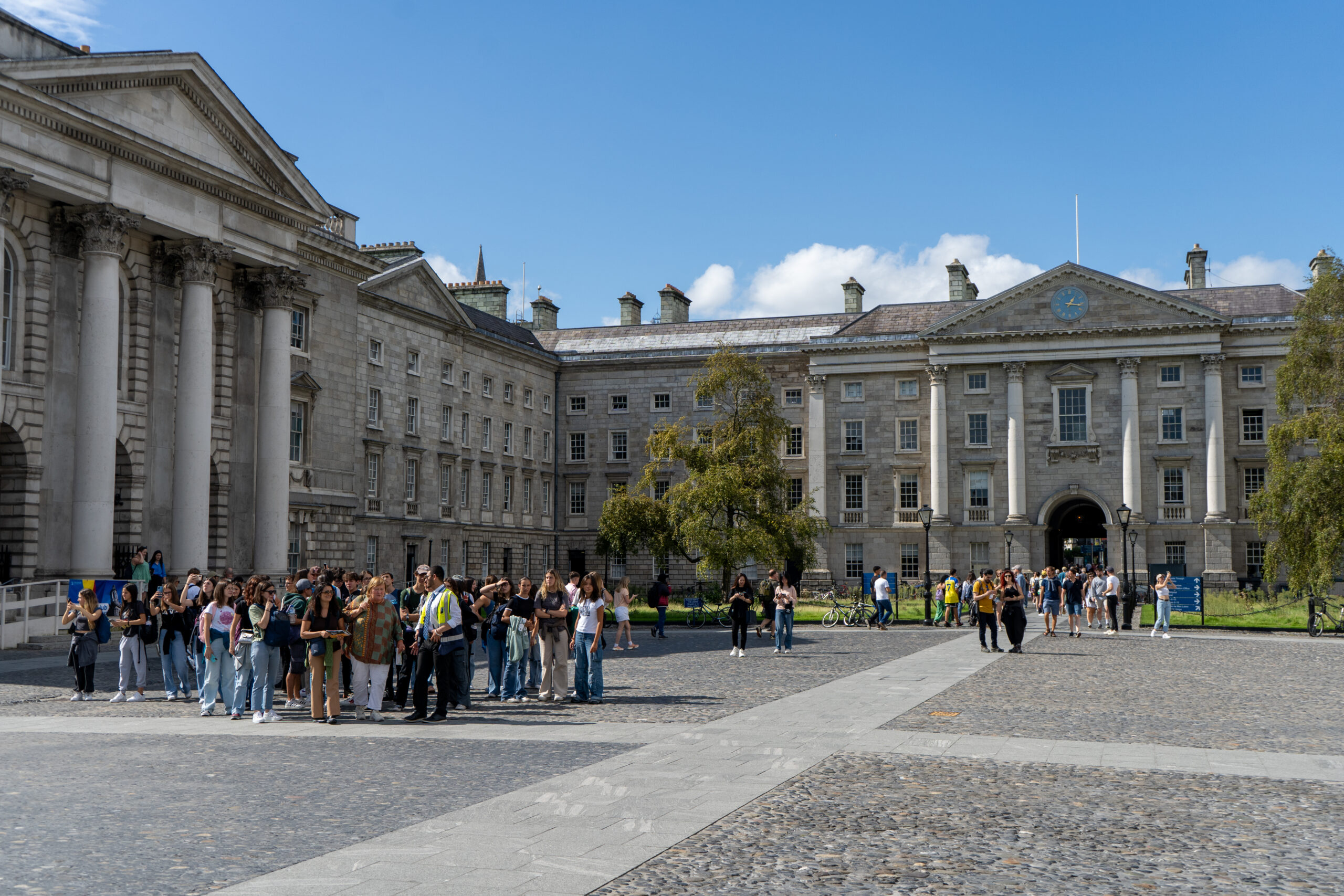Prior to 2012, when a module at Trinity College Dublin claimed to teach topics related to the Middle East and North Africa (MENA) region, it normally failed to provide students with an accurate and thorough intellectual understanding of its history and politics from antiquity to today, offering up a Western perspective instead. But in 2012, two Trinity professors and MENA experts, Dr Anne Fitzpatrick and Dr Zuleika Rodgers, decided to change this reality by officially establishing Trinity’s Near and Middle Eastern Studies (NMES) Department.
To better understand how studying the field of Middle Eastern studies has evolved more generally, Trinity News asked Assistant Professor in Near & Middle Eastern Studies Dr. Maya Petrovich for her opinion about stereotypes of the MENA region. She was clear: the way scholars approach the study of the region still has a long way to go. Petrovich cited the generational divide in options for specialisation between “those in the field who obtained their Ph. D.s before” and after the 2000s. Those who did so earlier could “focus on any time period, including ancient, medieval and early modern” and had the context of “colonial baggage.” She explained that the global reconstruction of universities, which has been going on since the 1990s, led to several of these options falling away. Professors in this field now “constantly have to prove [their] relevance in terms of global political issues.” This lack of background information and focus on more modern periods “creates a very shallow image of the region,” leading to the reinforcement of “ignorant and partial opinions.” Petrovich reiterated that “there is so much more to the region” than using present-day politics as a yardstick to measure the work done in its study.
“Stereotypes are best addressed and critically examined through education and research”
To address such scholarly limitations and to provide Trinity students with more avenues through which to study the MENA region, Trinity established the Hamdan bin Rashid Al Maktoum Centre for Middle Eastern Studies in 2019. It is a research centre which endeavours to form national and international networks while promoting the academic study of the Middle East through workshops, research seminars, and international webinars for students. Detailing the work the Al Maktoum Centre and the NMES Department have done to dispel negative stereotypes of the region – which are often strengthened by the media – Fitzpatrick explained that “stereotypes are best addressed and critically examined through education and research” and that this work through Al Maktoum in conjunction with the fact that “degrees [covering the Middle East] are offered within the [Near East] department” push academics one step closer to stimulating seismic shifts within the field. She added that NMES now even “offer[s] an MPhil in the Middle East in Global Context,” something that likely would have been unfathomable twenty years ago.
For Cassidy Murray, a second year Middle Eastern and European Languages and Cultures student, having the opportunity to study the MENA region day in, day out has been invaluable: “I wholeheartedly believe it is vital to have a strong comprehension of the Near East — from ancient times to more modern histories — in order to have an accurate and positively useful understanding and potential impact on contemporary situations.” She continued: “I feel that I can share personal experiences, converse with my professors about relevant conflicts, and find a safe space to learn, advocate, and connect in a space of complete validation and support.”
With the NMES Department and Al Maktoum Centre using education in an attempt to mitigate the distorted historical perceptions of the region, how, then, does the College support them in their efforts? Dr Fitzpatrick emphasised that, fortunately, the Department is “funded the same way as any other department” and was “given two other posts to meet needs of rising student numbers” as it grew. When asked whether she had observed any difference in how the NMES Department is treated by the College compared to other departments, she reported that it is as “well-supported as any other department in Arts and Humanities.”
The evolution of the NMES Department and Al Maktoum Centre offers an optimistic view of the expansion of Near East Studies at Trinity College. This is an important development, not just because of Trinity’s status as a renowned academic institution, but also, because of its position as the 16th most international university in the world, according to Times Higher Education. With such a diverse campus, the efforts of the NMES department and the Al Maktoum Centre aid in the increased representation of the many Middle Eastern students within the student body, reducing misconceptions about the countries they call home.
One BESS student, Kyla* from Egypt, detailed her frustrations with “Eurocentric modules” in the university setting, with most studies in reading lists “conducted in Europe”.
“You rarely ever see studies set in the MENA region,” they said.
“There’s this expectation that studying at Trinity will expose us to European values, but no one considers the possibility of other students being exposed to our values and culture as well.”
Such a reality highlights just how important a role the NMES Department and Al Maktoum Centre play in fostering an environment at Trinity where no student feels misunderstood and underrepresented. Education is power, and institutions like this are helping to pave the way for a future where new generations will finally understand and appreciate the true history, politics, and culture of the MENA region.
* Name changed for anonymity.






